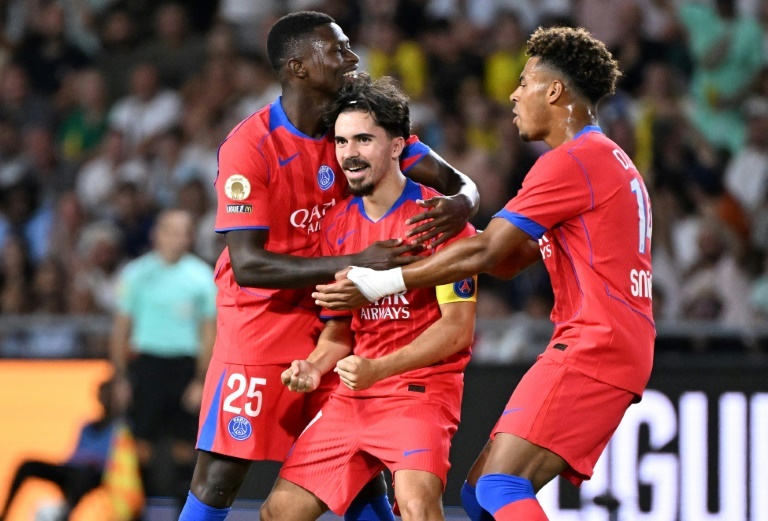A Saudi superfan awaits World Cup at 'home'

For the past two decades, Bader Turkistani has criss-crossed the globe to cheer on the Saudi national football team, leading crowds in poetic chants that have made him a social media star.Â
2 years ago
This year's World Cup in neighbouring Qatar, by contrast, has the feel of a home game: Doha is a mere two-hour flight from his base in Jeddah, on the Red Sea coast. The close proximity has Turkistani dreaming of a ferocious turnout by football-mad Saudis, the kind of support he says could help the Green Falcons break out of the group stage for the first time in nearly three decades.
"The Saudi national team is considered to be playing on its land, playing among its fans. Having the World Cup in Qatar is like having it in Saudi Arabia," the 37-year-old engineer told 'AFP'. "A simple border separates us... We will be present in very large numbers and fill the stadiums with 50,000 to 60,000 fans."
On a recent afternoon, wearing a white-and-green scarf over his traditional white thobe, Turkistani gave a preview of some of the chants he hopes will propel the Green Falcons to glory. "This is the green of Saudi," he sang into an electronic megaphone, as a friend pounded a drum made of animal hide: "Oh Saudi, we have come."
The stands of the Jeddah stadium behind him were empty, but he is certain the scene will be completely different once play gets underway: "50,000 fans will repeat this chant behind me in Qatar, instead of only 5,000 fans in Russia. This enthusiasm is transmitted to the players... We hope that we, as fans, will bring out the players' best energy," he said.
In total, Turkistani estimates he has watched more than 100 international matches played by the Green Falcons over the years, most of them documented in a bulging photo album he eagerly shows off to visitors. He also leads the fan association for the prestigious Jeddah-based Saudi club Al-Ahly.
Beyond its high cost, the hobby can be trying in other ways: while on the road, Turkistani has struggled with language barriers, fiercely cold weather and unfamiliar foreign food: "In Qatar, all these things will be very convenient for us," he said.
Saudi officials are putting on 240 weekly flights linking the kingdom to Qatar, up from six normally, and easing overland travel during the tournament, Tourism Minister Ahmed Al Khateeb told 'AFP' last month. At an event last week marking the World Cup trophy's stop in Saudi Arabia, Ibrahim Alkassim, secretary general of the national football association, told 'AFP' that Saudi turnout would be high enough "to exceed half the capacity of the stadium in each match".
Once Saudi fans are on Qatari soil, Turkistani will be ready for them, having stocked up on green-and-white T-shirts, plastic blowhorns, drums and balloons to distribute. Turkistani sees it as an opportunity to showcase the unique elements of Saudi fan culture - especially the songs - that he considers "a cultural heritage" and that have earned him nearly 280,000 followers on Twitter.
As for the Green Falcons' chances, Turkistani is well aware they face a tough fight in group play against the likes of Argentina, Mexico and Poland. But he is confident the squad will profit from what he describes as home-field advantage, and he expects the other competing Arab countries - host Qatar, Tunisia and Morocco - to benefit as well.
"The Saudi and Gulf fans will support the Arab teams," he said. "This makes me expect the Arab teams will surprise everyone and go far at this World Cup."
"The Saudi national team is considered to be playing on its land, playing among its fans. Having the World Cup in Qatar is like having it in Saudi Arabia," the 37-year-old engineer told 'AFP'. "A simple border separates us... We will be present in very large numbers and fill the stadiums with 50,000 to 60,000 fans."
On a recent afternoon, wearing a white-and-green scarf over his traditional white thobe, Turkistani gave a preview of some of the chants he hopes will propel the Green Falcons to glory. "This is the green of Saudi," he sang into an electronic megaphone, as a friend pounded a drum made of animal hide: "Oh Saudi, we have come."
The stands of the Jeddah stadium behind him were empty, but he is certain the scene will be completely different once play gets underway: "50,000 fans will repeat this chant behind me in Qatar, instead of only 5,000 fans in Russia. This enthusiasm is transmitted to the players... We hope that we, as fans, will bring out the players' best energy," he said.
In total, Turkistani estimates he has watched more than 100 international matches played by the Green Falcons over the years, most of them documented in a bulging photo album he eagerly shows off to visitors. He also leads the fan association for the prestigious Jeddah-based Saudi club Al-Ahly.
Beyond its high cost, the hobby can be trying in other ways: while on the road, Turkistani has struggled with language barriers, fiercely cold weather and unfamiliar foreign food: "In Qatar, all these things will be very convenient for us," he said.
Saudi officials are putting on 240 weekly flights linking the kingdom to Qatar, up from six normally, and easing overland travel during the tournament, Tourism Minister Ahmed Al Khateeb told 'AFP' last month. At an event last week marking the World Cup trophy's stop in Saudi Arabia, Ibrahim Alkassim, secretary general of the national football association, told 'AFP' that Saudi turnout would be high enough "to exceed half the capacity of the stadium in each match".
Once Saudi fans are on Qatari soil, Turkistani will be ready for them, having stocked up on green-and-white T-shirts, plastic blowhorns, drums and balloons to distribute. Turkistani sees it as an opportunity to showcase the unique elements of Saudi fan culture - especially the songs - that he considers "a cultural heritage" and that have earned him nearly 280,000 followers on Twitter.
As for the Green Falcons' chances, Turkistani is well aware they face a tough fight in group play against the likes of Argentina, Mexico and Poland. But he is confident the squad will profit from what he describes as home-field advantage, and he expects the other competing Arab countries - host Qatar, Tunisia and Morocco - to benefit as well.
"The Saudi and Gulf fans will support the Arab teams," he said. "This makes me expect the Arab teams will surprise everyone and go far at this World Cup."







Comments